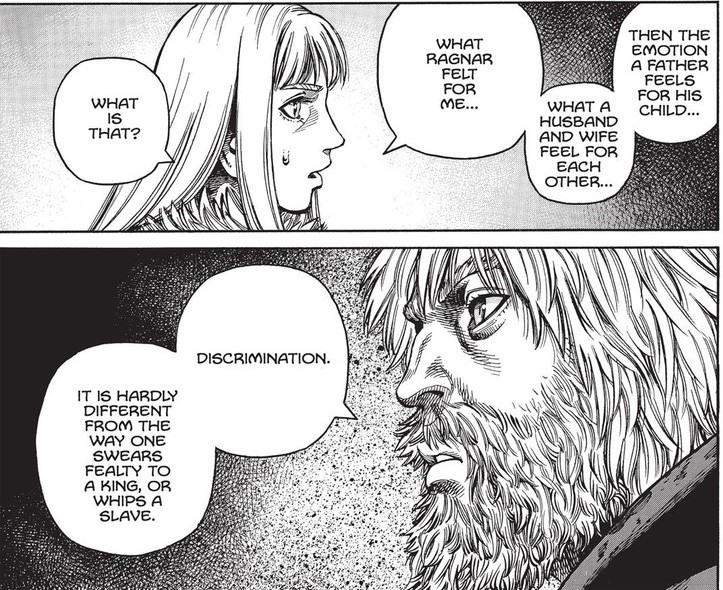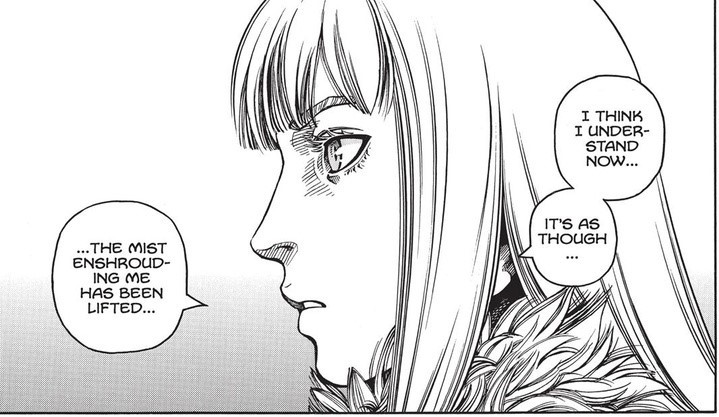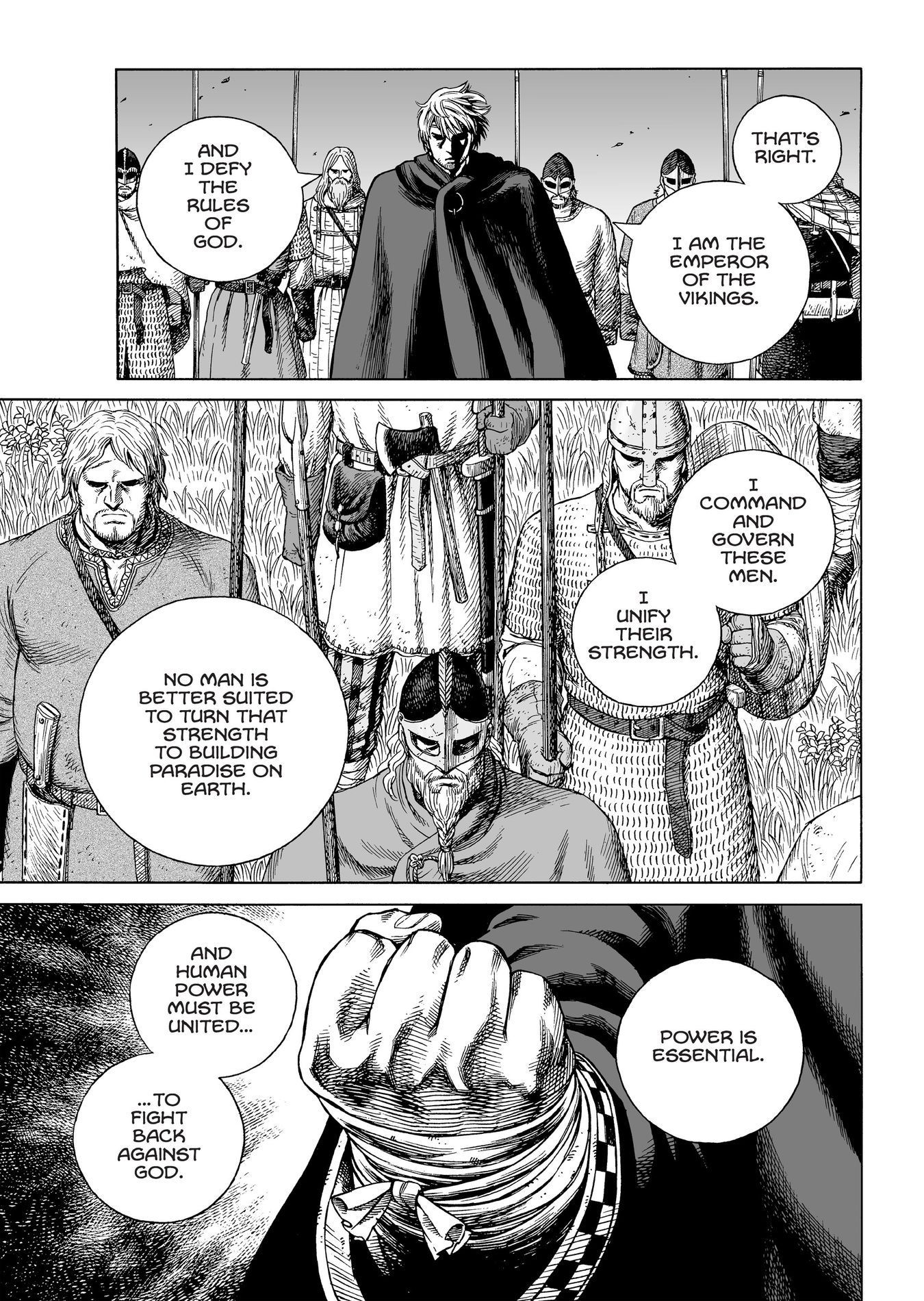Love is discrimination
Non-physics 17 mins read
I will try to argue that what most people call “love” is just discrimination. Years ago, I first saw this explained in Episode 18 of Vinland Saga. Back then, I found it very ridiculous. But after thinking about it for more time, I think it is a very logical argument and I will elaborate on it. In this post, I will argue that “True Love” is unconditional compassion towards all sentient beings and that “True Love” is only possible if you are omnipotent.
- Parent-Child
- Significant other
- Friendship
- Companion animals
- Self-love
- More noble discriminations
- Unconditional compassion towards all sentient beings
- Conclusion
You can either watch or read that scene below.



Parent-Child
This is the first one that Canute (based on the real Cnut) mentioned. In some sense, parental love is nothing but genetic discrimination. Evolution programmed parental love in animals (including humans) for parental care. Most people love their parents, siblings and offspring more than their grandparents, cousins, etc. This is, of course, because parents, siblings, and offspring share 50% of their DNA, more than any other relatives.
Significant other
This was the second one that Canute mentioned. Even long ago, I thought that for most people, the top criteria for selecting their significant other is how they look, and that felt discriminatory. I couldn’t articulate what type of discrimination it is until I first read Is It Bad to Prefer Attractive Partners? by William D’Alessandro more than a year ago. I understood that this discrimination is called lookism. It seems everyone that is not blind has this prejudice. I strongly recommend you to read that paper. But in short, the criterion that that a person’s face looks aesthetically attractive is a very arbitrary form of discrimination. Recall that we humans can only see a small fraction of the electromagnetic spectrum. What we see is an approximation but not the thing-in-itself, as Kant would call it. How one looks is really irrelevant. How one looks is also largely determined by one’s genetics and how rich they are so that one can afford luxuries like makeup. How compassionate or how intelligent a person is is more important. In the context of lookism, saying “You are so beautiful” is like saying “You are so high in the hierarchy of races/castes” in the context of racism/casteism.
Lookism is not the only discrimination that is involved in choosing a person’s significant other. How wealthy, influential, politically powerful, etc., is also considered. Note that colourism is a subset of lookism.
Another discrimination is that Kant thinks sex inherently violates the right of the other person to be not treated as property & sex without sexism/objectification is impossible. This is an even stronger objection1 that is valid even when lookism, wealthism, etc, are absent.
“For the natural use that one sex makes of the other’s sexual organs is enjoyment, for which one gives oneself up to the other. In this act a human being makes himself into a thing, which conflicts with the right of humanity in his own person.” [1797, Metaphysics of Morals, p. 62]
“Sexual love makes of the loved person an Object of appetite; as soon as that appetite has been stilled, the person is cast aside as one casts away a lemon which has been sucked dry. Sexual love can, of course, be combined with human love and so carry with it the characteristics of the latter, but taken by itself and for itself, it is nothing more than appetite. Taken by itself it is a degradation of human nature; for as soon as a person becomes an Object of appetite for another, all motives of moral relationship cease to function, because as an Object of appetite for another a person becomes a thing and can be treated and used as such by every one. This is the only case in which a human being is designed by nature as the Object of another’s enjoyment. Sexual desire is at the root of it; and that is why we are ashamed of it, and why all strict moralists, and those who had pretensions to be regarded as saints, sought to suppress and extirpate it. It is true that without it a man would be incomplete; he would rightly believe that he lacked the necessary organs, and this would make him imperfect as a human being; none the less men made pretence on this question and sought to suppress these inclinations because they degraded mankind.” [1760s, Lectures on Ethics, p. 163]
“If then a man wishes to satisfy his desire, and a woman hers, they stimulate each other’s desire ; their inclinations meet, but their object is not human nature but sex, and each of them dishonours the human nature of the other. They make of humanity an instrument for the satisfaction of their lusts and inclinations, and dishonour it by placing it on a level with animal nature. Sexuality, therefore, exposes mankind to the danger of equality with the beasts.” [1760s, Lectures on Ethics, p. 164]
Another thing is, philosophically, there is something inherently impure about sexual reproduction. In asexual reproduction, organisms pass on 100% of their genes. This sounds more noble than sexual reproduction. Even some organisms as complex as humans can do parthenogenesis, but our species can’t do that.
Let’s consider the example of Namekians from the Dragon Ball franchise. They can survive only on water. They reproduce only asexually via something similar to parthenogenesis. You might be thinking this implies they have no genetic diversity. A Namekian parent has some control over what type of child will be formed, which is why they still have genetic diversity. They also have very high regeneration powers. I think it would have been cool if humans were more like Namekians. Of course, it would have been even cooler if humans were reality warping beings like Celestialsapiens, but that is something our laws of physics will forbid. If we remove their supernatural Ki powers, Namekians will look not impossible to exist within our universe.
There is an innate desire to become immortal in all biological organisms. This desire is the reason why all biological organisms are programmed by natural selection to have the desire to pass on their genes. In asexual reproduction, basically, they create an identical copy of themselves. So, it is some form of cheap immortality. Sexual reproduction is an even cheaper form of immortality because, with each generation, the genes of an organism will be reduced by 50%, and eventually, they become negligible. Humans are a sapient (able to think abstractly) species. So, we can try to achieve immortality (either biologically or digitally) and don’t need these cheap forms of immortality.
Many intellectuals of the past have had similar feelings about this topic. Newton is the most famous of them.
“One very singular difference in the lives of these two great men [Newton & Descartes] is, that Sir Isaac, during the long course of years he enjoyed, was never sensible to any passion, was not subject to the common frailties of mankind, nor ever had any commerce with women — a circumstance which was assured me by the physician and surgeon who attended him in his last moments.”
― Voltaire
Voltaire correctly pointed out that Newton didn’t have “common frailties of mankind” like lust. Newton was liberated from the chains of evolution. Many other famous people like Newton who didn’t have this frailty and probably were never in a relationship include Gottfried Leibniz, Paul Erdős, Immanuel Kant, John Locke, Friedrich Nietzsche, David Hume, Baruch Spinoza, Jean-Paul Sartre, Arthur Schopenhauer, Susan B. Anthony, etc. Most Indian Buddhist and Jain monks are also like that, but it is not Noble if they did it for a dogmatic/religious reason.
Another discrimination that is common in marriages is caste discrimination, which in its most rigid form can be found on the Indian subcontinent. “Love marriages,” as they are called in India, are still frowned upon in most of the Indian subcontinent (despite that being the plot of pretty much most Indian movies), excluding some tiny rich/posh areas of gated communities living in the big cities. The only good thing the caste system ever did was that it stopped the Islamic conquest. If not, the conquest would have continued far beyond India to East Asia. Despite being occupied for like 800 years, Indians didn’t convert to Islam because they didn’t know how they could become Muslims if they were born into a Hindu caste. That’s why even now, the caste system is present in Pakistan & Bangladesh, even though it is very much against Islam.
Friendship
Unlike the previous 2, friendship is not genetic discrimination. But friendship is also discriminatory.
First, there is geographical discrimination. People generally become friends only with people who live nearby. However, this is decreasing because of the advent of the internet.
Second, there is discrimination based on how interesting or funny a person is. Even if a person is compassionate, people will not be his friends if he is boring.
Companion animals
Some people consider their companion animals as property, which violates the rights of companion animals.
Another routine discrimination in companion animals (even among those who consider their companion animal as family and not property) is speciesism. They think some species, like dogs, cats, etc, deserve to be companion animals and deserve freedom, but other species, like chickens and cows, don’t deserve to be companion animals and deserve no freedom. This arbitrary divide between species is not morally justifiable.
Lookism is also rampant in our treatment of animals. For example, people would rather have a beautiful-looking dog as a companion animal than another dog that is ugly and not aesthetically pleasing. People breed dogs that look more “cute” and this causes many breeds of “cute” dogs to have breathing problems. Many people would help a butterfly that is suffering, but not only do they never help ugly insects like cockroaches, but they even kill them when they see such aesthetically unpleasant creatures. Similarly, people will “own” a cute goldfish as a pet but wouldn’t consider shrimps or prawns pets.
Self-love
This should be obvious; it is just selfishness. It is just a fancier word for egotism, narcissism, etc.
More noble discriminations
What about adoption in humans and alloparenting in animals?
Adoption is certainly more noble than the previously considered Parent-Child love. But it is still similarly discriminatory to friendship. Because adopted child-parent spend a lot of time together they love each other. This just seems like discrimination based on how much time is spent with a person. Animals are not sapient so they are not moral agents. So we can’t judge the morality of either conventional animal parenting or alloparenting, and they can’t discriminate.
Similarly, platonic love is less discriminatory than romantic love, but platonic love is still discriminatory like friendship.
Unconditional compassion towards all sentient beings
“True Love” should not be discriminatory. So, “True Love” is: unconditional compassion towards all sentient beings. There is no condition like this sentient being should be genetically related or should be aestetically attractive or should be of a specific species, etc. This is selfless compared to previous discriminations.
I have already explained that beings that are not sapient (able to think abstractly) are not moral agents and therefore cannot discriminate. Similarly, beings who are not omnipotent cannot truly love.
Need for omnipotence
A lot of times, the discriminations that I mentioned were caused by human incapabilities. Like a single person can’t adopt all the children that are in poverty. So, one generally just parents one’s biological children.
So the solution to this problem is that there should be no incapabilities, i.e., one needs omnipotence. We, nonomnipotent beings, can only discriminate in our highly limited existence.
Once you have omnipotence, you can make gazillions of copies of yourself (with different sizes) and meet every sentient being in the universe (not just a Cauchy slice of the universe but the entire spacetime, i.e., including past and future sentient beings). You can help those sentient beings in every way and ensure that none of them ever suffers. You can give all of them infinite regeneration and infinite cognitive ability (so they can all understand everything). All sentient beings, from small insects to organisms as large as Bruhathkayosaurus. That would be a wonderful world compared to the hell that is our reality where there is enormous suffering (for example humans kill trillions of fishes every year).
Also note that even if an omnipotent being exists, it is true love only from one side. If a normal person loves the omnipotent being, it is just discrimination based on power since the omnipotent being is much more powerful than others.
I wish I were omnipotent, but unfortunately, the laws of physics can’t and won’t allow it. Unfortunately, in our reality, the laws of physics do not allow any supernatural phenomena. So, something like omnipotence, which is the extreme example of a supernatural phenomenon, can not exist in our reality, and therefore True Love is impossible. Note that I am only hoping for the existence of a benevolent omnipotent being. Not like the Abrahamic God, who is a very malevolent being. I would never want such a malevolent omnipotent being to exist as it would make life much more meaningless than it already is. I am glad that the malevolent Abrahamic God doesn’t exist.
In chapter 97, Canute shows the limitations of humans. He talks big how he is the King of England, Denmark and Norway. He united 3 kingdoms and was the strongest Viking. Then, he tries to stop the waves of the sea and explains how weak he is and his political power means nothing. He wants to establish a perfect country. He explains that God is the person who is making that dream impossible. Then, he explains why he must rebel and fight against God to achieve his dream.









I do not believe that a God exists. But if I assume the existence of a personal god, I had come to the same conclusion as Canute long before I read Vinland Saga. If I believed that a personal God existed, then it would be my moral duty to fight against him, for he is the reason for the problem of evil. It is unforgivable if there is a God who can solve all these problems and yet chooses not to solve them.
“If God really existed, it would be necessary to abolish him.”
“The first revolt is against the supreme tyranny of theology, of the phantom of God. As long as we have a master in heaven, we will be slaves on earth.”
Conclusion
I hope you are convinced that love is almost always discrimination.
Of course, I am not advocating that all discriminations are the same. Even though the love between Parent-Child is a genetic discrimination, it is not as bad as other genetic discriminations like racism or speciesism.
We should still try to reduce the discrimination that we do as much as we can, even though we can never make it zero.
Kant’s ethical objection that romance inherently violates the right of the other person to be not treated as property is very strong. But an even stronger objection is that lookism is based on a false understanding of “beauty”. Those humans who have high self-respect & dignity will understand that real beauty is not related to sensual pleasures. Real beauty is in the laws of physics & mathematical equations, which are infinitely more beautiful than human bodies. Unfortunately, we are biologically/evolutionarily programmed to pretend that the ugliest parts of humans are the most beautiful & pleasure-inducing entities in the universe. When Artificial Human Creating Machines are invented, then human reproduction becomes obsolete, and humans should program the artificial future humans to have no lust. Human bodies are fragile and will stop working & decompose within a century, but these equations are eternal.
“Every mathematician worthy of the name has experienced, if only rarely, the state of lucid exaltation in which one thought succeeds another as if miraculously, and in which the unconscious (however one interprets this word) seems to play a role. In a famous passage, Poincaré describes how he discovered Fuchsian functions in such a moment. About such states, Gauss is said to have remarked as follows: “Procreare jucundum (to conceive is a pleasure)”; he added, however, “sed parturire molestum (but to give birth is painful).” Unlike sexual pleasure, this feeling may last for hours at a time, even for days. Once you have experienced it, you are eager to repeat it but unable to do so at will, unless perhaps by dogged work which it seems to reward with its appearance. It is true that the pleasure experienced is not necessarily in proportion with the value of the discoveries with which it is associated.”
“The scientist does not study nature because it is useful to do so. He studies it because he takes pleasure in it, and he takes pleasure in it because it is beautiful. If nature were not beautiful it would not be worth knowing, and life would not be worth living. I am not speaking, of course, of the beauty which strikes the senses, of the beauty of qualities and appearances. I am far from despising this, but it has nothing to do with science. What I mean is that more intimate beauty which comes from the harmonious order of its parts, and which a pure intelligence can grasp.”
“Mathematics, rightly viewed, possesses not only truth, but supreme beauty – a beauty cold and austere, like that of sculpture, without appeal to any part of our weaker nature, without the gorgeous trappings of painting or music, yet sublimely pure, and capable of a stern perfection such as only the greatest art can show. The true spirit of delight, the exaltation, the sense of being more than Man, which is the touchstone of highest excellence, is to be found in mathematics as surely as in poetry.”
“But no pleasure is comparable to standing upon the vantage ground of truth.”
“I was over the moon when I proved the moonshine conjecture. I sometimes wonder if this is the feeling you get when you take certain drugs. I don’t actually know, as I have not tested this theory of mine.”
“It seems that if one is working from the point of view of getting beauty in one’s equations, and if one has really a sound insight, one is on a sure line of progress.”
But this footnote is unrelated to this post. ↩
